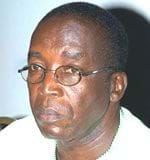The Electoral Commission (EC) has said a revision of the voting time from the current 7.00 a.m. to 5.00 p.m. to 6.00 a.m. to 4.00 p.m. during general elections will not be in the interest of the nation.
A Deputy Chairman of the EC in charge of Finance and Administration, Mr David Adenze Kanga, has told the Daily Graphic that setting the time for the commencement of voting at 6.00 a.m. would mean that pre-polling activities must be undertaken at dawn and said that could result in problems for the commission.
He said, for instance, that transportation of polling materials would have to be done in the dark and that could compromise transparency.
"It is possible that some agents will not arrive before 6.00 a.m. and if that happens who will be there to police the elections? This will bring us problems," Mr Kanga said.
Mr Kanga, who was reacting to calls made by the National Commission for Civic Education (NCCE) for a review of the polling period, said the country's political parties had not raised any objection to the current time and there was, therefore, no need to review.
A Deputy Chairperson of the NCCE, Mrs Augustina Akosua Akumanyi, at a press conference on January 11, called for a review of the time to curb the threats to peace due to the counting and collating of results in the night.
Mr Kanga further stated that an important pillar of the country's elections, which had made them successful, was the use of party agents to monitor the elections and added that changing the voting time might lead to those agents arriving late at the polling stations and questioning the measures put in place for the elections.
He noted that there had been no threats to peace at polling stations since 1992, during or after the declaration of results; adding that often the counting of results at polling stations did not go on into the night. Therefore, setting the time for commencement at 6.00 a.m. would not make any difference.
With regard to the collation at night, he said even if the time was changed, it would still go far into the night, since the EC officials had to wait for the results from all polling stations.
"Even if we close at 4.00 p.m., by the time all the results are brought together at the constituency it will still be dark or very late in the night," he said.
Changing the time, Mr Kanga said, could also disenfranchise some people, especially those self-employed who engaged in economic activities in the morning and voted late in the afternoon.
"In some communities, some people go to farm in the morning and vote later when they return from their farms. We will be cutting off such people," he said.
"All these issues have been discussed at the Inter-Party Advisory Committee (IPAC) before and none of the parties or the EC sees the need to have the time changed," he said.
A Deputy Chairman of the EC in Charge of Operations, Mr Kwadwo Safo-Kantanka, said reviewing the time would require a constitutional amendment, which was quite a long process.
He agreed that that amendment could be done in time for the elections in December but also re-echoed the statement made by Mr Kanga to the effect that no party had raised any objection to the current time.
Article 27 (1) of the Public Elections Regulations, 1996, Constitutional Instrument (CI) 15, states that: "The poll shall be taken between the hours of seven in the morning and five in the evening."
Source: MJFM








